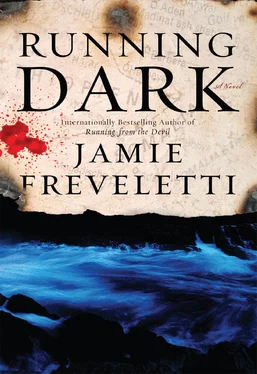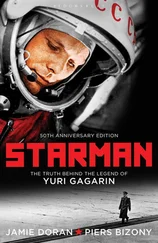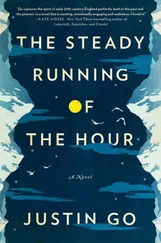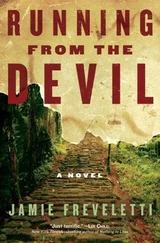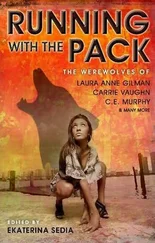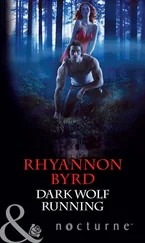The daughter, a shy beauty with blond hair and a fresh, almost translucent complexion, was twenty-four. Six years younger than Sumner and light-years more innocent, she, too, would cast glances at him whenever their paths crossed, but she hadn’t yet gotten up the courage to talk to him.
The father turned his head to gaze at the horizon. The woman next to Sumner was speaking again.
“Harry says we don’t need to travel anywhere, that there’s nothing to learn. But I think you should always see how the other half lives, don’t you?”
Sumner refrained from commenting on the fact that she was unlikely to see “the other half” while sailing on the sea in a yacht with massive suites and private butlers, but he assumed the woman meant well. Before Sumner could respond, Harry himself walked up to his wife.
“Whatcha doin’, sweetheart?” He boomed the question at his wife, towering over her in her lounge chair. He thrust his hand out at Sumner.
“Harry Block. Pleased to meet you.”
“Cameron Sumner.”
Sumner rose to shake Block’s hand. Based on his own six-foot-two-inch height and weight of 175, Sumner estimated that Block stood a full two inches taller and weighed an easy 300 pounds. He was built like a linebacker, with a doughy face, hair just starting to gray at the temples, and shrewd eyes, despite his easygoing exterior. Sumner watched Block size him up.
“No need to stand. Didn’t mean to bother you.” Block shook Sumner’s hand in a vise grip.
Sumner squeezed back. Block’s wife sat up.
“This is Harry, my husband, and I’m Cindy. Harry, hon, he works for Kaiser Franz. ”
“You a cabin boy?” Block hollered at Sumner.
“Harry!” Cindy hit Block on the arm.
“What’s wrong with that? It’s honest enough work, ain’t it?” Block turned innocent eyes on Sumner. Sumner hid his amusement.
“I’m not a cabin boy, no,” he said.
The German family was upon them, walking along the rail. Sumner felt the father’s presence at his right, then behind him. He heard the wife speak to the daughter in German. Since Sumner spoke fluent German, eavesdropping came easy.
“Americans are so loud,” she said. Sumner kept his eyes on Block while he strained to hear the German girl’s response.
“But friendly, I think, Mother.” She spoke in low tones.
Don’t be fooled by Harry, Sumner thought.
The father stepped past him. Out of the corner of his eye, Sumner could see that he continued to stare at the ocean. Sumner redirected his attention to Block, who was speaking.
“What’s the point of all this ‘cultural differences’ mumbo jumbo? Folks from Africa to Mexico count their money the same as us, is what I say. So what do you do for Kaiser Franz ?”
Sumner glanced back at the water. He saw the dot speeding toward them. He felt a surge of adrenaline that made his scalp tighten and his fingertips tingle.
He slipped a black T-shirt over his head. The dot grew larger every second. Soon it was joined by another. Sumner heard the distant roar of the cigarette boats’ engines. The craft hurtled toward them at an impressive speed.
“Block, get Cindy and the others off the deck. Tell the waiters to move everyone below.”
Block looked shocked. “What?”
“Mr. Block, do it. Now.”
“Well, I never been ordered around like that,” Block said.
Sumner didn’t stay to see if Block obeyed. He sprinted across the deck to the stairs that led to the bridge, clambered up them, and burst onto the small walkway that surrounded it just as Captain Joshua Wainwright stepped out.
“Pirates,” he said.
Sumner nodded. “Coming fast. Use the LRAD.”
Wainwright, a competent, friendly man in his early forties, snapped an order to his second-in-command. They pointed a large gun in the direction of the cigarette boats, now well within a mile of them.
“Hit it,” Wainwright said.
The Long Range Acoustic Device released a beam of high-pitched sound at the boats. Over 150 decibels of concentrated noise blasted through the air, like a sonic boom. Sumner winced as the sound assaulted his eardrums. He saw the driver of the lead cigarette boat clap a hand over one ear.
They continued to hurtle toward the Kaiser Franz.
“Again,” Wainwright said. He watched the cigarette boats through binoculars.
The LRAD blared again. When the sound faded, Sumner could hear the tourists screaming on the deck. Still the cigarette boats kept coming. Sumner grabbed a second set of binoculars. The pirates looked like Somalis, dark-skinned and thin. They stared at the cruise ship with undisguised greed in their eyes. He watched one of them hoist a large gun to his shoulder.
“They’ve got RPGs,” he said.
“What the hell is that?” Harry Block’s loud voice echoed on the bridge.
“Sir, you don’t belong here. Please get belowdecks.” Wainwright waved at an underling, who stepped up next to Block.
Block shook off the crew member’s grip on his arm like a horse shaking off a fly. “I said, what the hell are RPGs?”
Sumner lowered the binoculars to glance at Block. “Rocket-propelled grenades.”
“Holy shit,” Block said.
4
EMMA SAT UP. A HEAVY CLOUD OF ASH HUNG IN THE AIR, BLOTTINGout the sun. She flinched as people hurtled past her going in every direction, some coming so close that she put her arms up to protect herself. Sirens howled far in the distance. Downed runners lay all around her. Three behind her were moving, though they remained on the ground. Several others staggered to their feet. One man drew a deep breath, inhaled the lingering ash, and began a violent coughing fit.
She took stock. Her back from neck to tailbone ached where she’d landed in the dirt, her arms, previously wet from sweating, were caked in dust that clung to the moisture, and an eighteen-inch scrape of road rash covered her right leg and throbbed. She glanced at her feet and was surprised to see only filthy socks. At mile thirty her feet had ballooned in response to both the extreme heat and the long, pounding distance, and she’d retied her running shoes loosely in order to accommodate the swelling. At mile thirty-three, even the loose shoestrings had hurt, and she’d opened the laces as far as she could without losing the shoes entirely.
She sat in the dirt on the side of the path, twenty feet from the asphalt. The blackened hull of the vehicle smoldered while a small group of onlookers huddled fifty feet away, watching.
Emma felt her skin begin to crawl. Whatever medication the man had pumped into her was taking effect. She took a quick glance at the trail. The competitors flowed off the road and onto the shoulder to avoid getting anywhere near the burning car, then reentered and continued forward, using their feet to put distance between them and the site of the carnage. More than twelve thousand runners attempted the Comrades each year, a grueling eighty-nine-kilometer race between Durban and Pietermaritzburg. One had to qualify for the Comrades. Many competitors had successfully completed races like Hawaii’s Ironman and so were made of tough stuff. It was a “gun to gun” race, meaning that the competitors were required to complete the distance within eleven hours or be disqualified. When the clock struck twelve, the race was over. The bulk of the competitors passed the finish line between hours ten and eleven. Emma’s qualifying time put her in one of the fastest groups, a good thing in this instance, because the ten/eleven athletes hadn’t yet come this far. The bomb could have hit many more.
Now these experienced ultra runners took one look at the gaping crater twenty feet from the course and broke into a sprint, running away as fast as their trained legs could take them. There was no stopping the herd without creating an even more dangerous situation, and the few handlers that worked the course at this mile marker didn’t even try. They watched helplessly as the athletes stampeded past them.
Читать дальше
